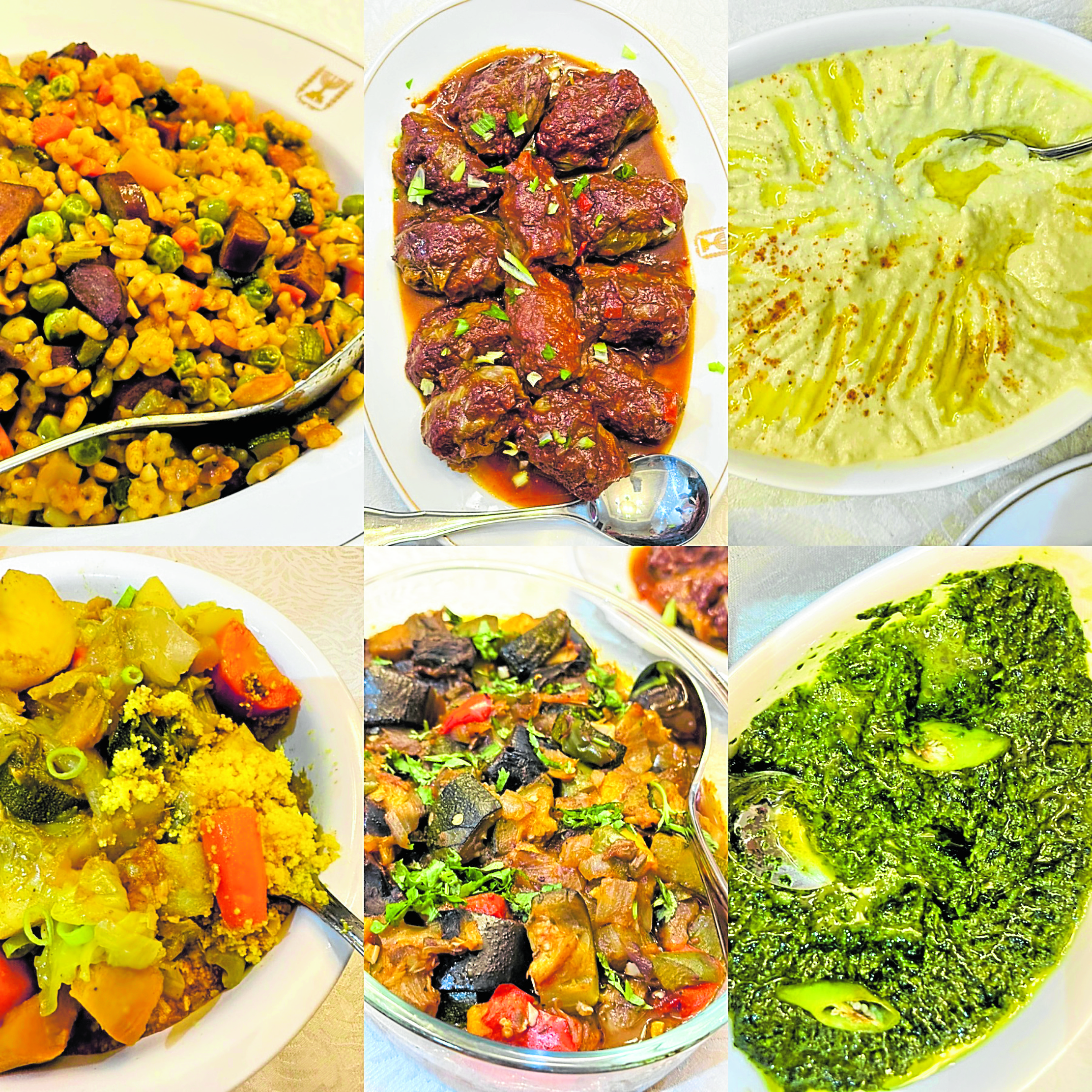Authentic Jewish feast to celebrate Rosh Hashanah

NEW YEAR BANQUET A delightful kosher menu by Israel Ambassador Ilan Fluss in celebration of Rosh Hashanah — PHOTOS BY MARGAUX SALCEDO
I finally experienced a real kosher dinner!
And what a blessing it was as this was no ordinary meal. It was in celebration of Rosh Hashanah, the Jewish New Year and the dinner was hosted by the Israeli ambassador to the Philippines, His Excellency Ambassador Ilan Fluss.
Rosh Hashanah and Yom Kippur
Rosh Hashanah began on Friday, the 15th of September, and ended on Sunday, the 17th of September. It leads to a 10-day period of reflection called the Days of Awe, culminating in Yom Kippur.
Yom Kippur is also called the Day of Atonement as it is a time when Jews seek to expiate their sins and achieve reconciliation with God. It is observed for a 25-hour period, during which Jews not only practice abstinence but also do a strict fast of no food or water!
It is also a time of seeking and offering forgiveness. It has been described as “a day of creating love and brotherhood, a day of abandoning jealousy and strife.” I think it’s beautiful and I hope that all who took this tradition and all its meaning to heart have found inner peace, now ready for all the challenges and blessings of the new year!
Speaking of year, for those who just celebrated Rosh Hashanah, it is now year 5784, not just 2023! The starting point is the date that the 12th-century Jewish philosopher Maimonides established as the biblical date of creation. The Jewish calendar is luni-solar, which means that the calendar keeps in sync with the natural cycles of both the sun and the moon. So Rosh Hashanah, the first of the High Holidays, is the birthday of the universe and the anniversary of the creation of Adam and Eve.
Simanim
Ambassador Fluss treated guests to what is called in the Jewish tradition as Simanim or symbolic foods, which are followed by a blessing. He served apples with honey, pomegranate and dates.
Simanim means signs or indicators that point the way to improved circumstances. Ambassador Fluss explained that there is usually the head of a fish, as Rosh Hashanah translates to ‘head of the year’ and eating a fish head is symbolic and literal way of bringing that to life. It can also mean starting off the year on the right track and being ‘ahead’ of the game.
Apples are to be dipped in honey, symbolizing the hope for a sweet year ahead. Honey is associated with manna, mentioned in the Old Testament as provided by God during the 40 years that the Israelites wandered the desert and described in the Torah as being “like honey wafers”. This simanim is supposed to be a reminder that any sustenance or material benefits that come your way are solely dependent upon God’s grace and favor.
Pomegranates, with their many seeds, symbolize the many merits we will create in the coming year. And dates symbolize that one’s enemies would be consumed because the Hebrew word for dates, t’marim, evokes the word tam “to end”. But it also has a more optimistic interpretation. Dates are also sweet, so similar to honey, it is to represent a sweet outcome, as when ancient Israel was described as “a land flowing with milk and honey,” the Torah (first five books of the Hebrew bible) is said to be referring to date honey.
And when you celebrate, as a Happy New Year greeting, you exclaim, Shanah tova! Here’s to a good year ahead!
Kosher
We were also treated to a wonderful kosher spread of salads, stews, couscous and mountain rice. Some dishes were cooked by Ambassador Fluss’ wife Gila herself!
Ambassador Fluss explained that Kosher food follows certain rules in both selection and preparation. For example, meat is allowed but not meat that has blood. The meat, including poultry, must first be soaked in clean water for 30 minutes, then allowed to drip dry, salted and left to hang for 60 minutes to further draw out any remaining blood before being considered kosher. Meat and dairy cannot be mixed. Fish is considered kosher only if it comes from an animal that has fins and scales, such as tuna, salmon, halibut or mackerel. Shrimp, crab, oysters, lobster and other types of shellfish are not permitted.
The dish I loved the most, which was cooked by Ambassador Fluss’ wife, was the holishkes or stuffed cabbage leaves. Ground meat and rice are tucked into leaves of cabbage and cooked in tomato sauce with brown sugar and, sometimes, raisins. Stuffed cabbage leaves supposedly represent the idea of one’s fate for the year ahead being sealed. This is also usually served on Shemini Atzeret, the day that follows Sukkot.
Sukkot or the Feast of Tabernacles is the Jewish autumn festival of double thanksgiving and is held five days after Yom Kippur. This year, Sukkot 2023 began on the evening of Friday, Sept. 29, and will end on Friday, Oct. 6.
Chag Sameach!
There is so much to learn and appreciate about Jewish food and culture. I love most the deep meaning given to all actions. How we are called to reflect even as we eat! May these traditions bring us closer to the Lord and help us become the best versions of ourselves in praise of His name!
From Rosh Hashanah to Yom Kippur to Sukkot, may I greet you all Shanah Tova and Chag Sameach! May this new year bring you happiness, good health, prosperity and peace! And the sweetest fruits and success stories! INQ
